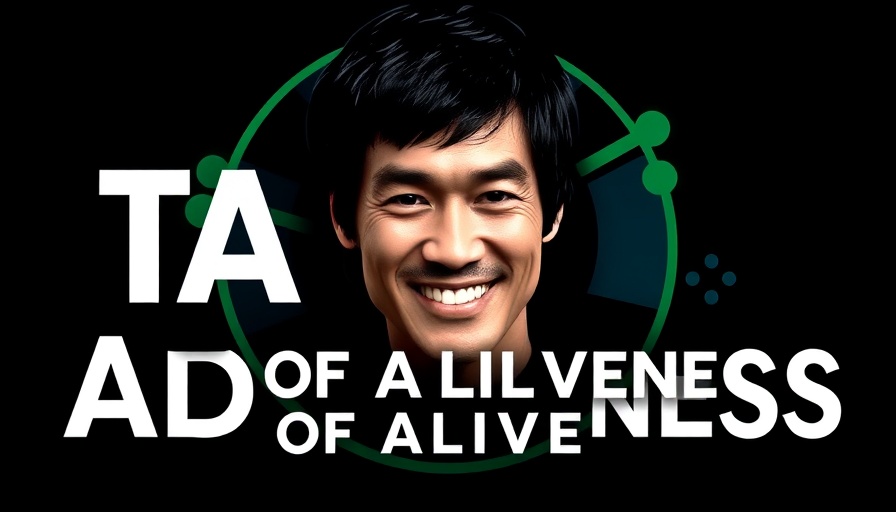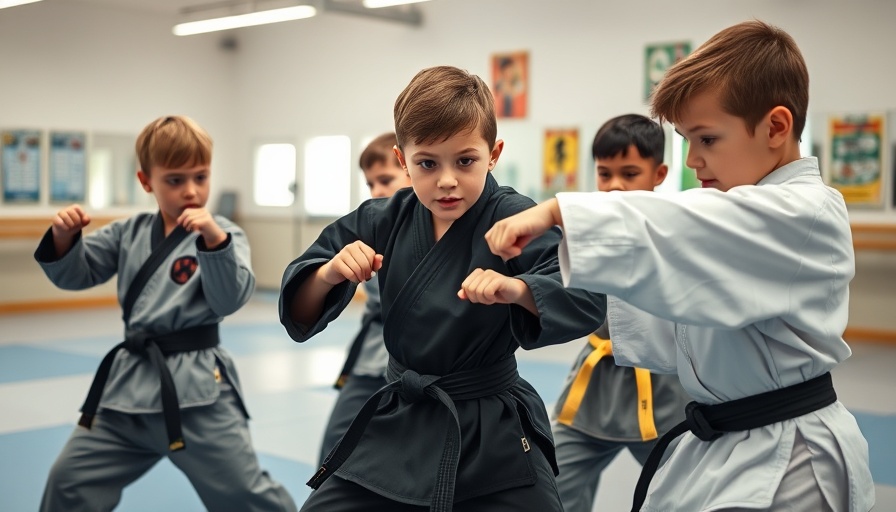
Understanding Bruce Lee's Aliveness: The Heart of Martial Arts
Bruce Lee's legacy extends far beyond martial arts; it's a philosophy rooted in adaptability and authenticity that continues to influence sports and personal development today. His concept of 'aliveness' serves as a framework for understanding not just combat, but the art of movement itself. Aliveness refers to the ability to engage in dynamic, unstructured, and realistic practices that promote genuine self-expression and adaptability in martial arts. In this examination, we delve deeper into Bruce Lee's transformative ideas, bridging the past with modern training methodologies.
The Origins of Aliveness in Bruce Lee's Philosophy
Bruce Lee introduced the idea of 'aliveness' to combat training, challenging the rigid methods of traditional martial arts. He believed that merely repeating movements in isolation stifles one's ability to adapt and react instinctively. Instead, he advocated for practice that closely mimics real-life combat situations, where adjustments must be made spontaneously. This concept was revolutionary at a time when martial arts training was heavily scripted and formalized.
In his seminal work, The Tao of Jeet Kune Do, he argues that 'mere repetition of rhythmic, calculated movements robs combat movement of its “aliveness” and “ishness” — its reality.' His insights laid the groundwork for what would evolve into more dynamic training methods used in various martial arts today. Learning should encompass timing, energy, and motion—three elements that contribute to realistic combat practice.
Aliveness: A Bridge to Modern Combat Training
Fast forward to today, Bruce Lee's principles of aliveness resonate with contemporary training techniques like the constraints-led approach. Coaches and instructors are now increasingly recognizing the importance of creating environments that foster improvisation and adaptive responses. This shift promotes a more instinctual way of moving, allowing practitioners to develop an innate sense of timing and distance.
In practical terms, this might look like partnering individuals in sparring sessions where both participants are encouraged to respond organically rather than relying on pre-scripted techniques. Matt Thornton, a proponent of Lee's philosophy, emphasizes that 'aliveness is about the freedom to use whatever works in the moment.' This highlights the essence of functional combat training—moving beyond the confines of traditional styles.
The Emotional Connection: Why Aliveness Matters
Engaging in 'alive' practices can be particularly valuable for martial artists of all levels, from beginners to seasoned fighters. It adds an emotional depth to training. For young practitioners, this approach cultivates confidence and quick thinking. As they face unpredictable scenarios, they learn to trust their instincts and adapt to challenges, nurturing both mental and physical resilience.
For instructors, the philosophy of aliveness becomes a powerful tool. It encourages them to create an engaging learning atmosphere that prioritizes personal expression, allowing students to explore their unique styles and adapt techniques to their individual needs. This is pivotal in helping students not just become fighters, but well-rounded individuals who can navigate life with more agility.
Counterarguments: The Traditionalist Perspective
However, Lee's philosophy isn't without its detractors. Some traditionalists argue that adhering strictly to established techniques imparts foundational knowledge essential to martial arts mastery. They contend that without these forms, practitioners might lack essential discipline and understanding. The counterargument underscores the role of structured training in cultivating skills.
Yet, Lee’s vision wasn't to eliminate combinations or techniques but to liberate the practitioner from the 'shackles' of rigid methodologies. Acknowledging this duality invites an enriching perspective: both foundational techniques and dynamic practice can coexist, providing a comprehensive martial arts experience.
Diving into the Future: The Legacy of Bruce Lee's Philosophy
Bruce Lee's ideas on aliveness extend beyond martial arts. They serve as a metaphor for life itself—a reminder of the importance of adaptability and resilience in a rapidly changing world. Whether in sports, personal development, or interpersonal relationships, the capacity to evolve and respond creatively to life's challenges remains a timeless lesson. The principles he established encourage us to stay fluid like water, adapting shape and form to the environment we navigate.
Conclusion: Embracing Bruce Lee’s Philosophy in Modern Life
Incorporating Bruce Lee's philosophy of aliveness into martial arts training provides a transformative approach that fosters adaptability, self-expression, and functional movement. By understanding and embracing these principles, martial artists can enhance their training while equipping themselves to handle the unpredictability of both combat and life. Lee’s teachings deconstruct the barriers erected by rigid styles, urging us to pursue a more profound connection to ourselves and our practices. In this way, he remains relevant, urging every practitioner to explore their path with an open mind and heart.
To embark on your martial arts journey with purpose and passion, engage with our transformative classes! Discover Bruce Lee’s legacy and make it a part of your training.
 Add Row
Add Row  Add
Add 








Write A Comment